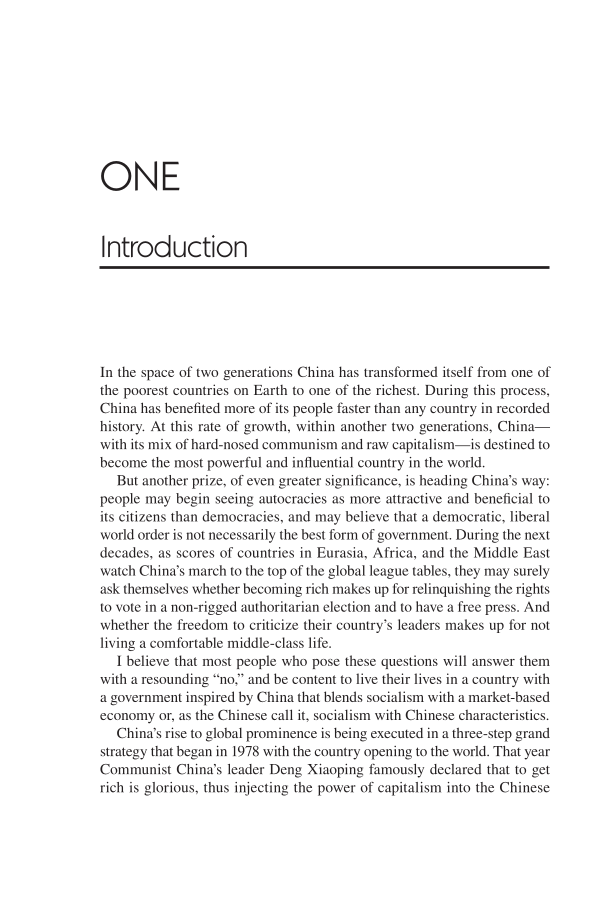ONE Introduction In the space of two generations China has transformed itself from one of the poorest countries on Earth to one of the richest. During this process, China has benefited more of its people faster than any country in recorded history. At this rate of growth, within another two generations, China— with its mix of hard-nosed communism and raw capitalism—is destined to become the most powerful and influential country in the world. But another prize, of even greater significance, is heading China’s way: people may begin seeing autocracies as more attractive and beneficial to its citizens than democracies, and may believe that a democratic, liberal world order is not necessarily the best form of government. During the next decades, as scores of countries in Eurasia, Africa, and the Middle East watch China’s march to the top of the global league tables, they may surely ask themselves whether becoming rich makes up for relinquishing the rights to vote in a non-rigged authoritarian election and to have a free press. And whether the freedom to criticize their country’s leaders makes up for not living a comfortable middle-class life. I believe that most people who pose these questions will answer them with a resounding “no,” and be content to live their lives in a country with a government inspired by China that blends socialism with a market-based economy or, as the Chinese call it, socialism with Chinese characteristics. China’s rise to global prominence is being executed in a three-step grand strategy that began in 1978 with the country opening to the world. That year Communist China’s leader Deng Xiaoping famously declared that to get rich is glorious, thus injecting the power of capitalism into the Chinese
Document Details My Account Print multiple pages
Print
You have printed 0 times in the last 24 hours.
Your print count will reset on at .
You may print 0 more time(s) before then.
You may print a maximum of 0 pages at a time.

































































































































































































